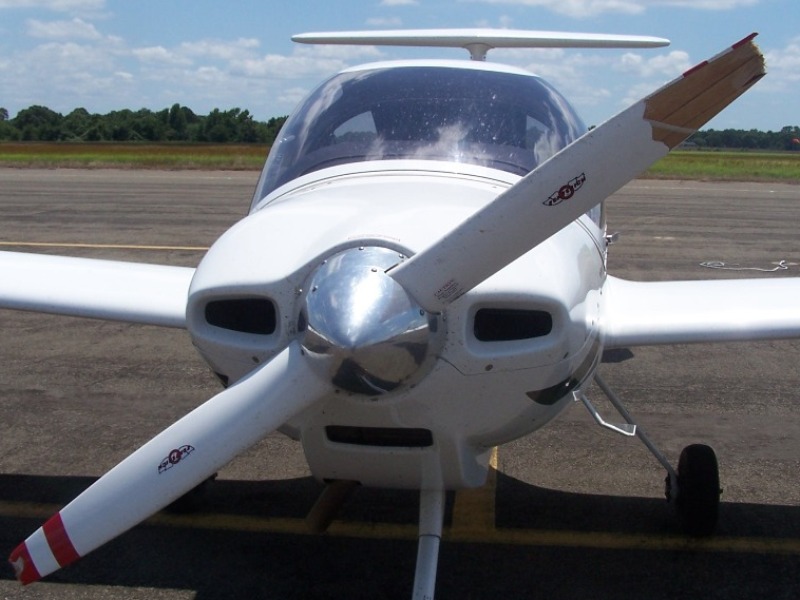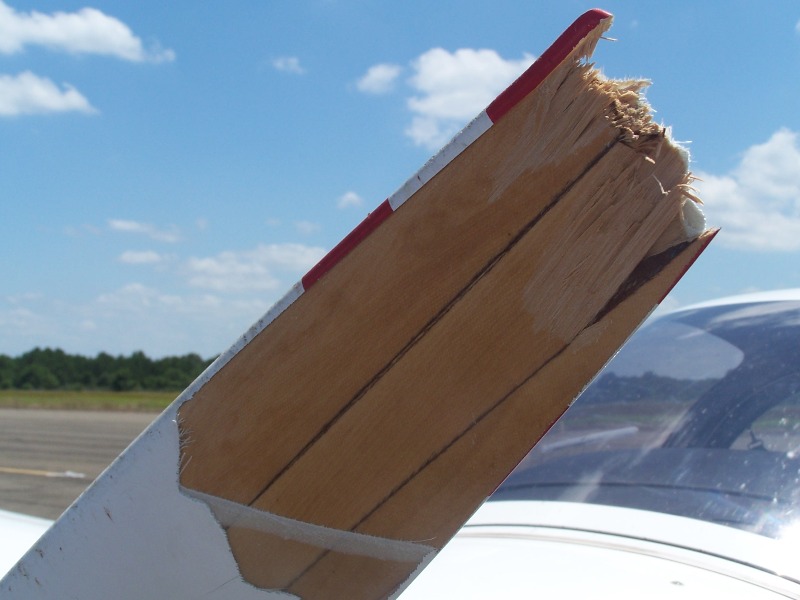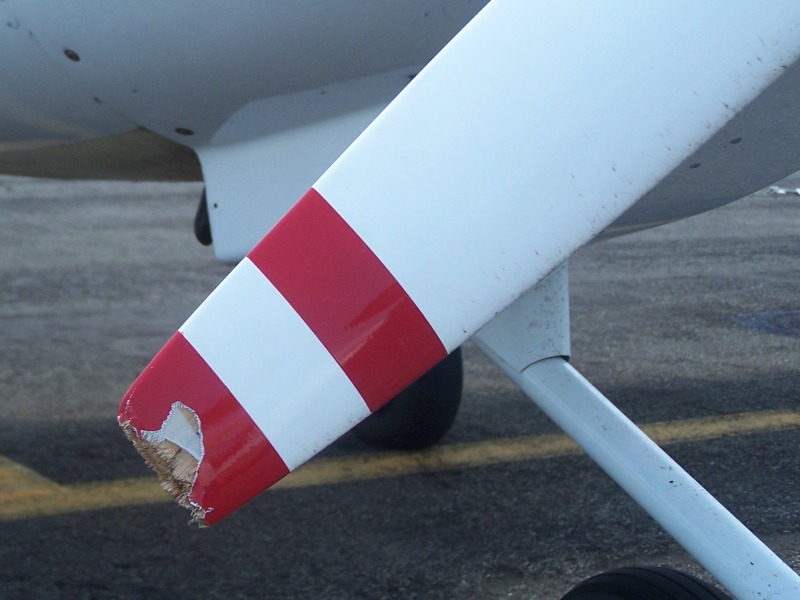Why its important to preflight
Here are some snapshots of what a towbar can do to a wood prop if you leave the towbar on during takeoff. The student was preparing for his first solo cross country when a gust of wind came through and blew all of his charts off the wing. He ran across the tarmac to get his charts and forgot the towbar was still on. He then proceeded to taxi, runup, and takeoff. The towbar hit the prop on takeoff as the towbar was later found on the runway by another departing aircraft. The student claimed he didn't notice any engine trouble on takeoff so he continued 70 miles or so to his destination. He first noticed engine trouble after reducing power while approaching the airport. Fortunately the damage is only going to run 8 - 10,000 dollars. Had this been a metal prop there probably would be more damage to the engine as the wood prop absorbed most of the impact. This says a lot about those Sensenich wood props though. The towbar is perfectly fine, minus some griding from being pushed along the concrete, for those who might be concerned.



 , I would think that it would make a not so nice noise when it hit the towbar, this is why I don't use one
, I would think that it would make a not so nice noise when it hit the towbar, this is why I don't use one 
 plus parts, plus a prop.. Bet it'll be more than $10,000.
plus parts, plus a prop.. Bet it'll be more than $10,000.